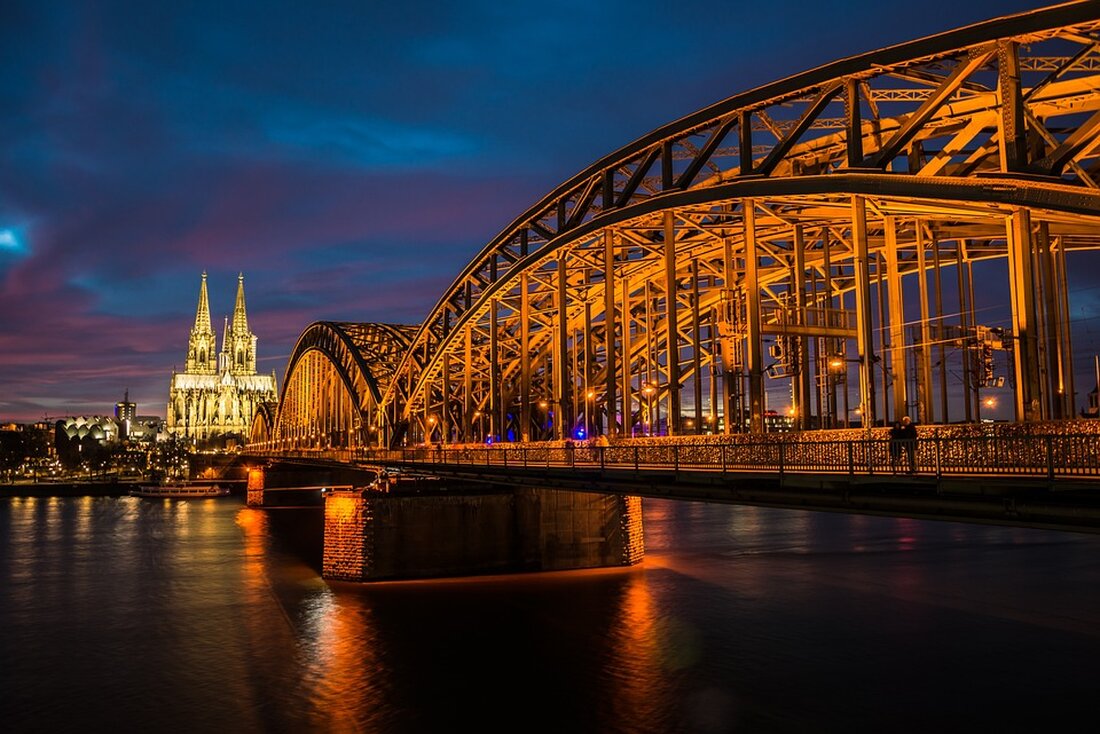Heat turn in Cologne: E.ON presents current data for the use of heating technologies and renovation stand
In this article from E.ON, learn what the current state of the heat turns in the German million cities of Berlin, Hamburg, Munich and Cologne looks like. The data of the E.ON heat card provide information about the use of heating technologies and the renovation stand in the cities. Also learn what potential new energy solutions offer and how private house and apartment owners can contribute to the heat transition. Further information and the digital heat card can be found at www.eon.com/waermewende.

Heat turn in Cologne: E.ON presents current data for the use of heating technologies and renovation stand
e.on presents heat-turn-in status in German million cities
The success of the German climate neuterism goals by 2045 depends significantly on the successful implementation of the heat turnaround in the big cities. About a third of the total primary energy consumption and about 40 percent of all CO2 emissions in Germany come from the building stock. As part of the Federal Government's heat planning and decarbonization law, the municipalities are obliged to create heat plans in order to transform the heat supply on site towards climate neutrality. E.ON has now published current data on the use of heating technologies and the renovation stand in the German million cities of Berlin, Hamburg, Munich and Cologne.
Marc Spieker, board member for sales and customer solutions at E.ON, emphasizes the importance of the heat transition in metropolitan areas: "Especially in the big cities, the greatest potential for significant reduction in CO2 emissions and creating efficient heat supply. As a driver of the energy transition, we support E.ON cities and municipalities on your way to decarbonization. Using digital tools and data We create transparency and show concrete implementation options. ”
A look at the heat card from E.ON shows that district heating in many major cities, including Berlin, Hamburg, Munich and Cologne, is a popular heating method. More than a third of the houses in Munich (36.5 percent), Hamburg (36.2 percent) and Berlin (33.6 percent) are already supplied with climate -friendly district heating. In Cologne, on the other hand, the district heating share is only 11.2 percent. However, the cathedral city plans to significantly increase this proportion by 2030 and to bring to a third of all heating technologies. District heating offers efficient and environmentally friendly heat supply, especially in metropolitan areas.
As far as the spread of heat pumps is concerned, Berlin leads the city quartet with a share of 4.3 percent in relation to all heating technologies. In a Berliner Straße with a hundred houses, four houses are already heated with an environmentally friendly heat pump. Hamburg follows with a heat pump portion of two percent, while Munich and Cologne are almost equal with a share of 1.9 percent.
There are clear differences between the four major cities in terms of use of fossil heating, with gas and oil still making a large part. Hamburg has the lowest proportion of gas heating (36 percent), followed by Berlin (37 percent) and Munich (40.8 percent). In Cologne, on the other hand, more than half of the households heat with gas (56.6 percent). The proportion of oil heaters varies between 16.3 percent in Munich and 22.7 percent in Cologne. Berlin is 19.7 percent and Hamburg 20.9 percent.
The energetic renovation of buildings is a crucial factor to significantly reduce heat consumption. In Berlin (59.5 percent) and Cologne (54.9 percent), more than half of all buildings are already partially or fully renovated, which creates a good basis for reducing energy consumption. This means not only a contribution to climate protection, but also lower heating costs for end users. Hamburg occupies third place with 53.7 percent partially or fully renovated buildings, while Munich follows fourth place due to its high proportion of old buildings and a renovation level of 41.3 percent.
Private house and apartment owners can also contribute to the successful implementation of the heat transition through renovations and the exchange of heating. Investments in new energy solutions are not only worthwhile for the climate, but often also financially. A study by E.ON in cooperation with RWTH Aachen has shown that, for example, the annual electricity and heating cost calculation for a unanimized row house from 1990 in 2024 can be reduced by 69 percent to 904 euros compared to gas heating. In a single -family house from 2005, the cost of an average of 2,947 to 815 euros per year drops, which corresponds to a reduction of 72 percent. Additional savings are possible through the use of intelligent, digital energy management systems.
With environmentally friendly heat solutions and digital tools such as the E.ON heating card, E.ON supports German cities and municipalities in determining the current state of the heat transition in terms of renovation rate, CO2 emissions and distribution of heating technologies. The digital heat card is also a valuable resource for municipalities that have to present their sustainable heat planning by 2026 or 2028 at the latest.
Further information and the digital heat card can be found at www.eon.com/waermewende.

 Suche
Suche
 Mein Konto
Mein Konto
